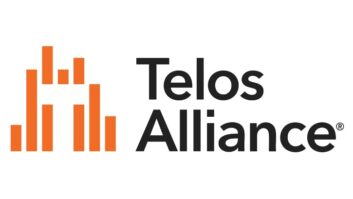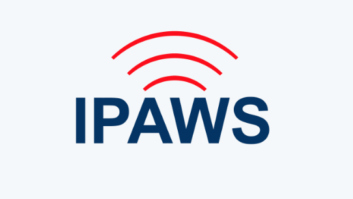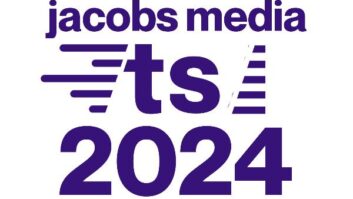(click thumbnail)Gregg LindahlBy now most broadcast groups have established an Internet presence of some kind – at the very least station Web sites.
Many have established an online audio presence as well, the exception being Infinity Broadcasting, which flatly states there is not a viable streaming radio business model.
Cox Radio Interactive, the Internet division of Cox Radio Inc., bets that streaming its content and building multi-layered, interactive Web sites is a viable business model.
Cox, rated by Duncan’s American Radio as the third-largest radio company based on revenue, has committed its resources – human and capital – to the development of its Internet strategy.
Gregg Lindahl is vice president of Cox Radio Interactive. He reports to Robert F. Neil, president of Cox Radio. Since CXRi launched in November of 2000, Lindahl has been responsible for all 76 Cox Radio station Web sites – all of them streaming.
According to the division’s Web site, the CXRi sites attract 1.2 million unique users per month.
Old hand
Lindahl has watched Internet radio for some time. Prior to his position as head of the CXRi, he was president and COO of mp3radio.com, an Internet radio service that is a partnership between Cox Interactive Media and MP3.com.
In his opinion, the radio industry in general isn’t doing very well with the Internet.
“I give most stations outside our group a ‘D+’ overall because of the dearth of functionality of most stations’ Web sites,” said Lindahl.
In assessing his company’s efforts, Lindahl side steps the “grade” question for CXRi. He said that would be presumptive.
“But we’re doing much better than most at creating content and usability on our sites based on what our target audiences want,” Lindahl said.
CXRi knows something about what its listeners want. It has deployed a permission-based e-mail push system on its sites with partner MessageMedia Inc.’s UnityMail product.
Each CXRi site features an opt-in contest, ticket giveaway, prize or other offers that require users to log their name, age, gender, e-mail and phone numbers. Instead of targeting ads to listeners based on this information, CXRi sites send offers from its advertisers to users that opted into their database.
Multi-layered strategy
Lindahl said the e-mail campaigns are part of CXRi’s overall platform sales. CXRi controls and never shares its users information with advertisers.
Click open any CXRi Web site. Front and center you will see a “listen live” box that is distinguished from the rest of the page by its quiet, utilitarian color scheme. Lindahl said this template is the work of CXRi’s in-house Web team.
The company streams its audio in Windows format and offers a free Windows player that users can install in less than 10 minutes. StreamAudio, a subsidiary of peer-to-peer streaming service ChainCast Networks, provides streaming and ad insertion services to CXRi.
Listeners can also do a music “search” on CXRi sites, a multi-layered function that is provided by partner Alliance Entertainment Corp.
Music news, downloads, artist’s biographies and compact disc purchase options are available with a click of the music search button on CXRi sites.
Alliance Entertainment’s All Music Guides locate anything commercially available on CD, according to the company.
Revenue split
(click thumbnail)
The revenue from CD sales on CXRi sites is split about the same way that a retail record store splits with its wholesale suppliers, said Craig Hahn, CXRi’s director of sales.
In-house, local Web producers provide each CXRi site with local events calendars.
For weather reports, CXRi was partnered with AccuWeather.com, but is now in a transition to a weather feature that was developed in-house at CXRi.
“We choose our partners based on economics in part,” said Lindahl. “We develop a loose product spec and share it with vendors who have indicated an interest in helping us. We’ll involve a lot of people in the final selection process.”
In spite of its well-developed Web strategy, Lindahl confessed he believes that CXRi can be improved and refined. He said the company will continue to innovate.
“Is our execution as elegant as it could be? As consistent?” said Lindahl. “No, but we’ve done an awful lot in a short period of time that would make our grade better than average.”
Lindahl admitted that because his company gives his stations a great deal of autonomy, there are some inconsistencies.
“Some of our stations get top marks; some in our group are average,” said Lindahl. “It has to do with the markets, the competition and the people.”
Lindahl said that if CXRi succeeds, it’s not because of some brilliant corporate oversight or incredible vision handed down from the home office.
“It comes down to great work by our local stations,” Lindahl said.
Before Cox Radio launched the CXRi division, it conducted internal focus groups with its radio stations.
“We continually get input from them, formally and informally,” said Lindahl.
“We have a whole department called ‘Sight Services’ which exists as the internal customer relations department,” said Lindahl. “It’s their job to communicate with stations, get input and see that their needs are served.”
While CXRi has a national sales effort, separate from their terrestrial sales division, Cox allows its stations to work out Internet sales tactics.
Hahn has oversight of CXRi sales strategy, both local and national. While the company does not reveal its revenue numbers, Hahn said that CXRi’s approach to sales is about the same as any terrestrial radio group’s: about 80 percent of sales are local and the rest are national.
Sales local and national
“But CXRI has the national rep and I sell regionally,” Hahn said. “And a lot of the local stations, either one or as a cluster, sell CXRi,” Hahn said. “Our philosophy to treat the Net radio as 25th hour of the broadcast day.”
“Ninety percent of CXRi’s users are already listeners to the stations and 76 percent are P1 listeners, according to Arbitron’s study from two years ago,” said Hahn.
Hahn said CXRi sales are part of the total sales within Cox radio.
“Our local AEs begin (their sales) with radio and complete with Web sites,” Hahn said. “We can do so much with the Web sites – coupons, tickets, games – we think of them as ‘turbo-charged’ radio stations. It’s another way to reach listeners,” Hahn said.
Cox designates an “Internet champion” in each market, usually an account executive or manager.
Lindahl said that each champion is someone who has shown an aptitude and a passion for Web projects and whose main function is to make sure that Internet strategies get the attention they deserve within the station.
“There may be specific additional compensation tied to the job and we recommend this to our stations,” said Lindahl. “In some cases our managers hire a specific person for this job and those are the cases in which we have the best revenue results because that person is totally focused on the job.”
Good prospect
Lindahl sees a bright future for Internet radio. It’s a natural partner to the terrestrial signals, Lindahl believes.
Cox radio stations promote CXRi content each day in dozens of on-air mentions and off-line events. That’s a model for success that many industry advisors advocate: push your Web site on-air, use your Web site to further develop your brand and listener loyalty.
“I think there’s a plethora of opportunities to republish content we already create and use the Internet as the distribution platform,” Lindahl said.














